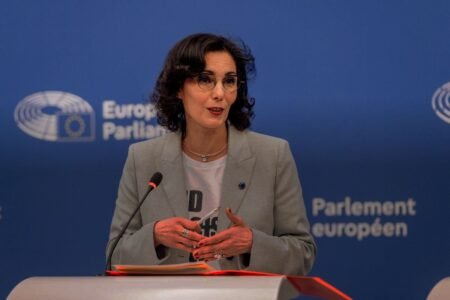On the occasion of this year’s International Women’s Day, the European Commission published its 2019 report on equality between women and men in the EU.
Advertisement
The 2019 Gender Equality report shows some progress in gender equality, but women still continue to face inequalities in many areas:
- The EU employment rate for women reached an all-time high of 66.4 % in 2017, but the situation differs across Member States. Last year, eight Member States received recommendations under the European Semester framework to improve female participation in the labour market (Austria, Czechia, Germany, Estonia, Ireland, Italy, Poland, and Slovakia).
- Women are more at risk of poverty, with salaries on average 16% lower than for men. This translates in the pension gap, which stood at 35.7 % in 2017. In some countries, more than 10 % of older women cannot afford necessary health care.
- Women remain largely under-represented in Parliaments and government. Only 6 of the 28 national parliaments across the EU are led by a woman and seven out of ten members of national parliaments in the EU are men. While the current level of 30.5 % female senior Ministers is the highest since data were first available for all EU Member States in 2004, there is still evidence suggesting that women tend to be allocated portfolios considered to have lower political priority.
- The glass-ceiling remains a reality in the business world with only 6.3 % of CEO positions in major publicly listed companies in the EU held by women.
Sharing caring responsibilities with new EU Work-life Balance rules
The recent agreement on the Work life balance Directive sets a European minimum standard of 10 days of paid paternity leave for fathers following the birth of their child, compensated at the sick pay level. It strengthens the existing right to 4 months of parental leave, by making 2 months non-transferable between parents and introducing compensation for these 2 months at a level to be determined by the Member States.It also includes provisions for carer’s leave by attributing 5 days per worker per year, as a new European entitlement for workers. Last but not least, the new rules strengthen the right for all parents and carers to request flexible working arrangements.
Women in the European Parliament and in the European Commission
In November 2018, women accounted for 36.4 % of the 749 members of the European Parliament (MEPs), slightly down from the peak of 37.3 % that was reached at the end of 2016. Finland stands out clearly with 76.9 % of its MEPs being women. The representatives of seven Member States include at least 40 % of each gender (Ireland, Spain, France, Croatia, Latvia, Malta, and Sweden, while over 80% of MEPs from Bulgaria, Estonia, Cyprus, Lithuania, and Hungary are men).
Within the European Commission, sustained efforts to meet the 40 % target of women in its middle and senior management by 2019, set by President Jean-Claude Juncker are showing results. The proportion of female managers has reached 39 % at all levels, 37 % at senior management level and 40 % at middle management level.
Source: European Commission







